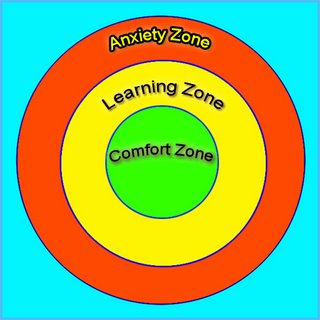Lesson 7: Do People Really Change Over Time?
Attention

The question of this lesson is do people really change...what factors might push YOU out of your comfort zone and into change?
Learning Outcomes
Upon completion of this lesson's material, students will be able to:
- Identify the role that character and resilience play in successful aging
- Identify personal stories of character and resilient change and adaptation
Teaching
Read Chapter 11 in Vaillant
This is a classic question in all of Psychology! Do people really change? You might have heard that "Tigers don't change their stripes" or even, more germane to this class, "You can't teach an old dog new tricks".
But are these axioms true?
In Developmental Psychology we study theories. Many of those theories present that a LOT of change happens in the early years and then not so much as we settle into adulthood. Erikson is one who stands aside from many of these theories and takes the change that, YES, people do (or at least CAN) change throughout the lifespan.
Vaillant challenges us to think that much of what we think in terms of personality does not change much. However, SOMETHING seems to change over time. Character changes.
Character
Consider the example in Chapter 11 of the woman, who at age 40 and divorced from her 3rd abusive husband...does she marry a 4th or decide to run a shelter for abused women? This decision point, the adaptation of life to life's lessons, is critical in identifying the ways in which people continue to change throughout their lives.
Resilience
Another personality factor that may not change over time is resilience. This is a peculiar aspect of the personality that has confounded psychology for years. Why is it that one person growing up in an abusive home suffers life-long debilitation while another, equally abused, seems to be able to thrive?
Though we may not understand resilience itself, we do know that resilient people can adapt to changes and situations better than non-resilient people. So, this adaptation is a way in which people encounter life-long change! (Particularly if they are resilient)
Assessment
Lesson 7 Quiz
- Consider, in this instance, your own character and resilience...we all have some of it! What decision points have you faced? What challenges? IN what ways have you felt resilient?
- How do you think these experiences will impact your effectiveness working with individuals with mental illness?
